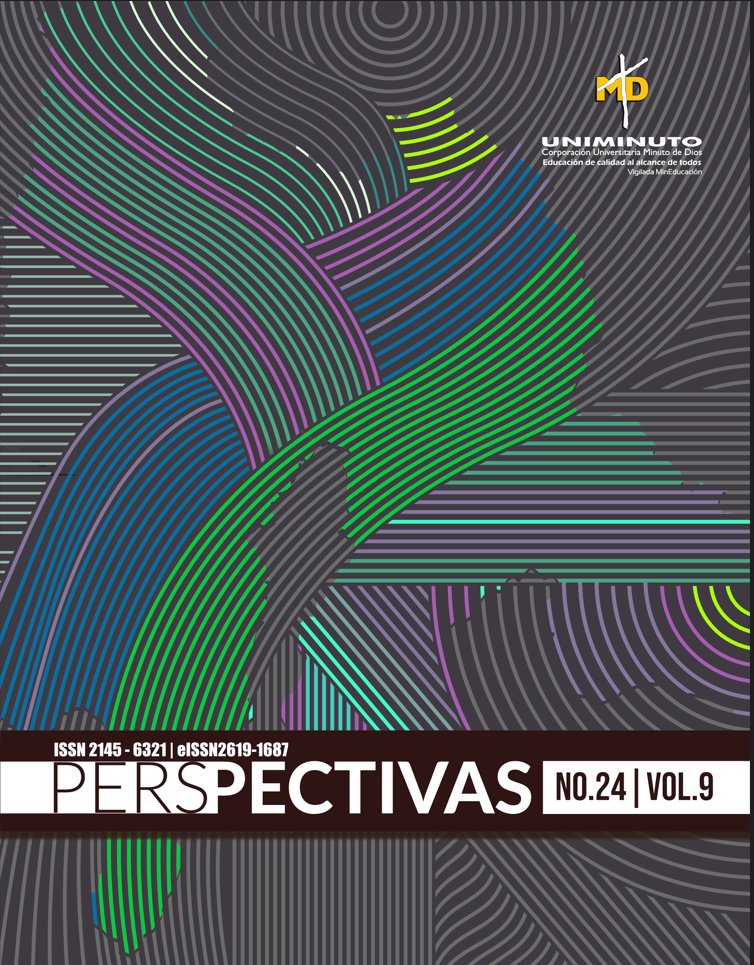Gestión educativa de frente a la globalización: reto ante la transformación digital
Barra lateral del artículo
Cómo citar
Altmetrics
Detalles del artículo

Esta obra está bajo una licencia internacional Creative Commons Atribución 4.0.
Contenido principal del artículo
Resumen
Este ensayo tiene por objetivo reflexionar sobre la gestión educativa de frente a la globalización, con el fin de concientizar en la necesidad de enfrentar los desafíos que representa y, a su vez, aprovechar las oportunidades que trae consigo. Lo anterior obliga a replantear las estrategias de planificación y gestión educativa en correspondencia con los avances tecnológicos, en especial en países con poco acceso a la tecnología y a la conectividad, que corren el riesgo de quedar en desventaja en un mundo interconectado. Se concluye que, ante el incremento de la digitalización, el centro educativo está forzado a reinventarse y asumir el reto de comprender e implementar sistemas y redes de información para avanzar hacia la universalización pues, es el medio para la transformación de la educación y su integración dentro de la sociedad del conocimiento
Referencias
Álvarez, B. (2020). La gestión del conocimiento como generador de ventaja competitiva en organizaciones educativas (Lambayeque, Perú). Revista Scientific, 5(17), 205-220. https://doi.org/10.29394/Scientific.issn.2542-2987.2020.5.17.10.205-220
Aranda, J. (2020). El papel de la educación en la globalización. El mudo globalizado en un futuro incierto. Educación y comunicación en la Sociedad del Conocimiento. 20 (2), 287-305. https://revistaseug.ugr.es/index.php/eticanet/article/view/16550/14091
Avendaño, W. y Guacaneme, R. (2016). Educación y Globalización: una visión crítica. Civilizar. 16(30), 191-206. http://www.scielo.org.co/pdf/ccso/v16n30/v16n30a14.pdf
Ayuso-del Puerto, D. y Gutiérrez-Esteban, P. (2022) “La Inteligencia Artificial como recurso educativo durante la formación inicial del profesorado”. RIED, 25(2), pp. 346-358. https://www.redalyc.org/journal/3314/331470794017/html/
Bravo, A. (2018). La educación como eje fundamental para el desarrollo. Dialogus, 1(1), 20-30. http://portal.amelica.org/ameli/jatsRepo/326/3261309002/html/
Bula Villalobos, O. (2024). Globalización, desigualdad e injusticia social: implicaciones para la educación y la formación de adultos. Innovaciones Educativas, 26(40), 160–169. https://doi.org/10.22458/ie.v26i40.4770
Chan, M. E. (2020). Cibercultura y gestión curricular de nuevos campos profesionales. Ponencia Central. Revista Q. 11 (22), 103-127. https://repository.upb.edu.co/handle/20.500.11912/8110
Chiavenato, I. (2014). Introducción a la teoría general de la administración: McGraw-Hill/Interamericana editores, S.A. de C.V.
Flores, M.V. (2016). La globalización como fenómeno político, económico y social. Scientiflic e-journal of Human Sciences. 34 (12), 26-41. https://www.redalyc.org/pdf/709/70946593002.pdf
García, S. (2017). Alfabetización Digital. Razón y palabra. 21(98), 66-81. https://www.redalyc.org/pdf/1995/199553113006.pdf
García-Peña, V., Mora-Marcillo, A. y Ávila-Ramírez, J. (2020). La inteligencia artificial en la educación. Dominio de las Ciencias. 6(3), 648-666. https://dominiodelasciencias.com/ojs/index.php/es/article/view/1421
Morduchowicz, R. (2021) Competencias y habilidades digitales.
UNESCO.https://unesdoc.unesco.org/ark:/48223/pf0000380113.locale=en
Obregón, L., Onofre, C. y Pareja, E. (2023). Impacto de la inteligencia artificial en el ámbito educativo. FIPCAEC. 8(3), 342-354. https://www.fipcaec.com/index.php/fipcaec/article/view/871
Peñaherrera, W. P., Cunuhay, W. C., Nata, D. J y Moreira, L. E. (2022). Implementación de la Inteligencia Artificial (IA) como Recurso Educativo. Recimundo. 6 (2), 402-413. https://recimundo.com/index.php/es/article/view/1586
Rajadell-Puiggrós, N. (2016). Las estrategias didácticas, elementos-claves para avanzar en los escenarios educativos en un mundo complejo, acelerado y globalizado. Práxis educacional. 12(22), 23-38. file:///F:/Documentos/Descargas/881-Texto%20do%20artigo-1471-1-10-20170831.pdf
Rivas, A., Buchbinder, N. y Barrenechea, I. (2023). El futuro de la Inteligencia Artificial en educación en América Latina. ProFuturo y OEI. https://oei.int/oficinas/secretaria-general/publicaciones/el-futuro-de-la-inteligencia-artificial-en-educacion-en-america-latina
Rodas, E., Zavala, A. y Mera, V. (2020). Mundos virtuales basado en la educación. Perspectivas. 1(17), 48-57. file:///F:/DatosCatty/Descargas/ddiazbarbosa,+document+(1)+(1)3.pdf
Rodelo, M., Jay, W., Torres, G. y Flórez Y. (2020). Transversalidad en la gestión del conocimiento. Utopía y Práxis Latinoamericana, 25, 124-137. https://www.researchgate.net/publication/346115307_Transversalidad_curricular_en_la_gestion_del_conocimiento
Román, L. (2023). Retos de la gestión educativa para la transformación de la escuela. Reflexiones y propuestas. Palmeros, G., Medina, G. y López, M. (Coord). La gestión educativa en el escenario Latinoamericano. Avances y retos. (73-77). RedAGE. https://ddd.uab.cat/record/284114
Tomalá, M., Macarño, E., Carrasco, C. y Aroni, E. (2023). Incidencias de la inteligencia artificial en la educación. Recimundo. 7(12), 238-251. https://recimundo.com/index.php/es/article/view/2045
UNESCO. (2023) “Guidance for generative AI in education and research - UNESCO Digital Library”, 2023. https://unesdoc.unesco.org/ark:/48223/pf0000386693
Artículos más leídos del mismo autor/a
- Catty Orellana Guevara, Investigación en la gestión de la educación: sus aportes en la solución de problemas dentro del centro escolar , Perspectivas: Vol. 7 Núm. 22 (2022)

